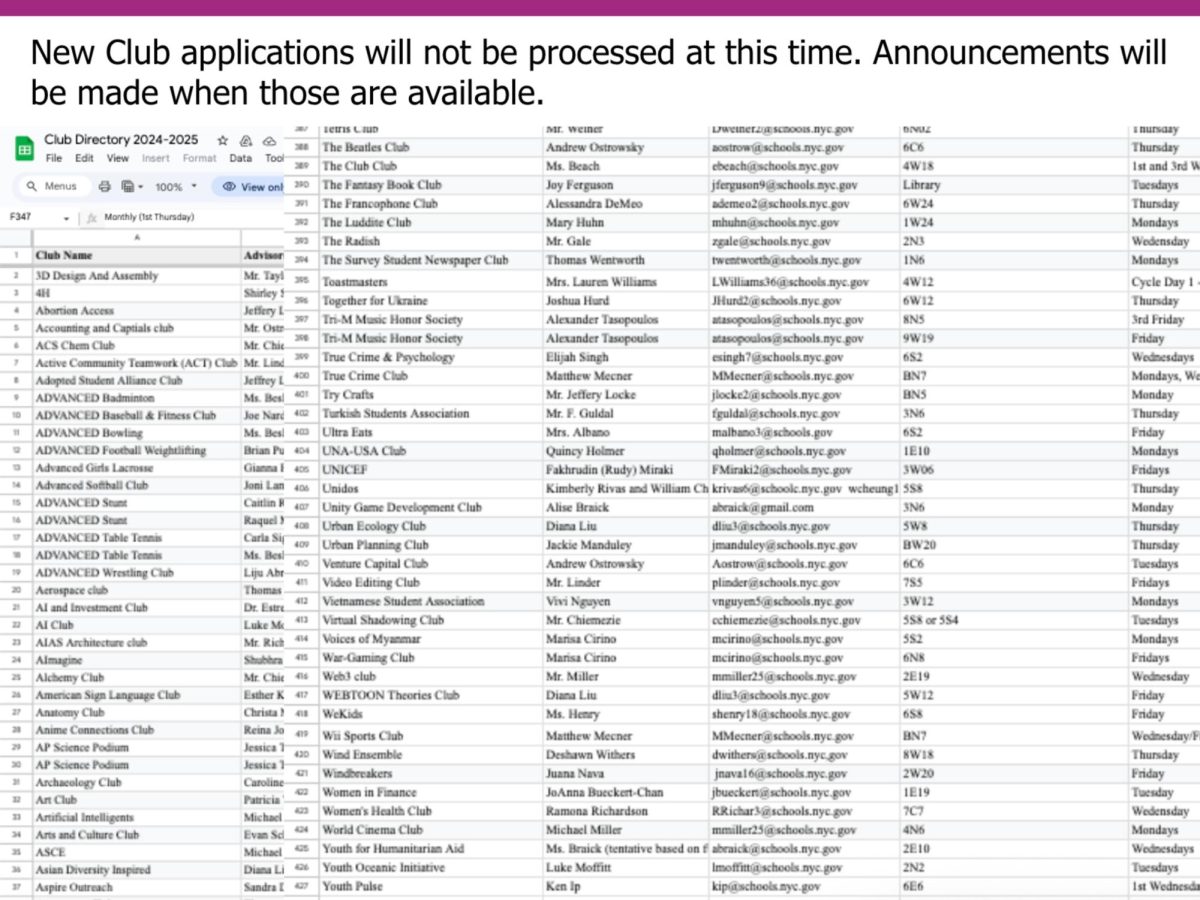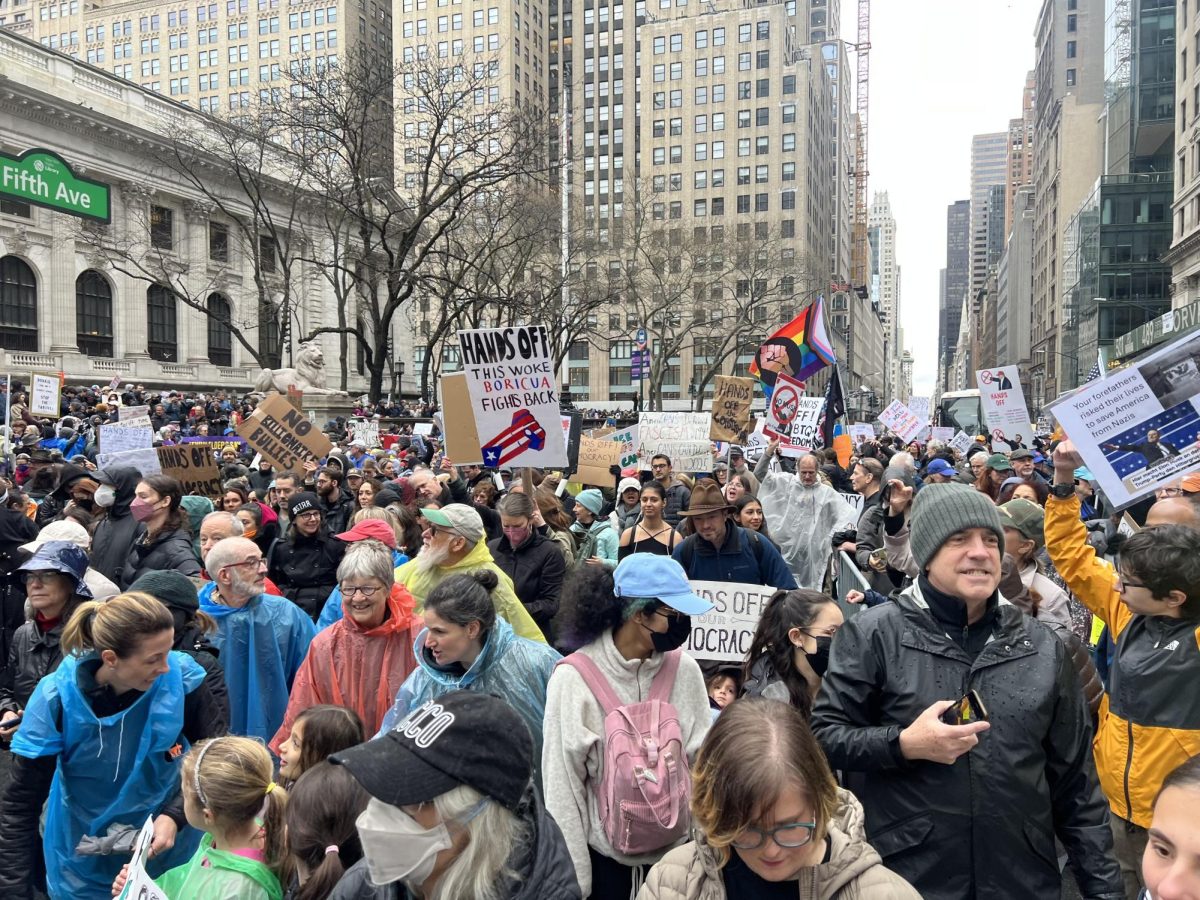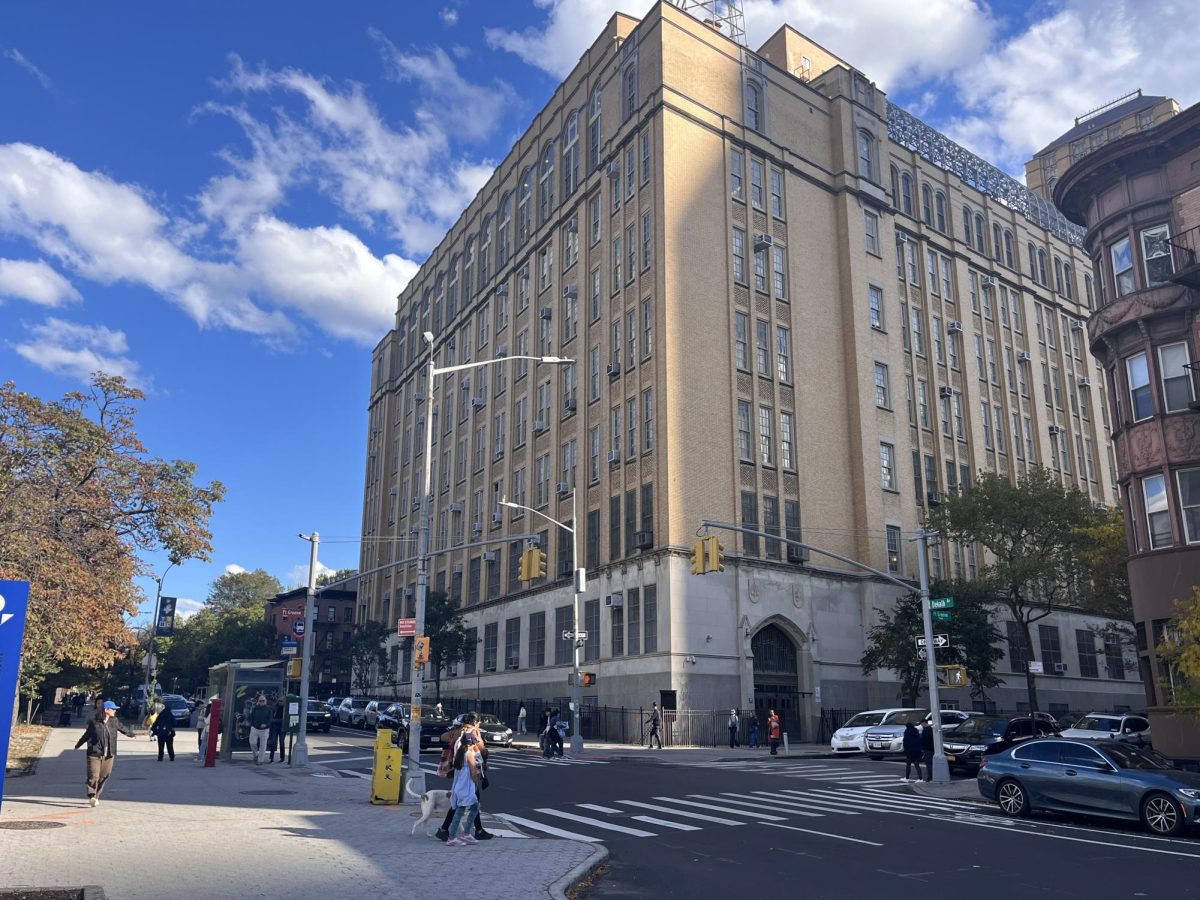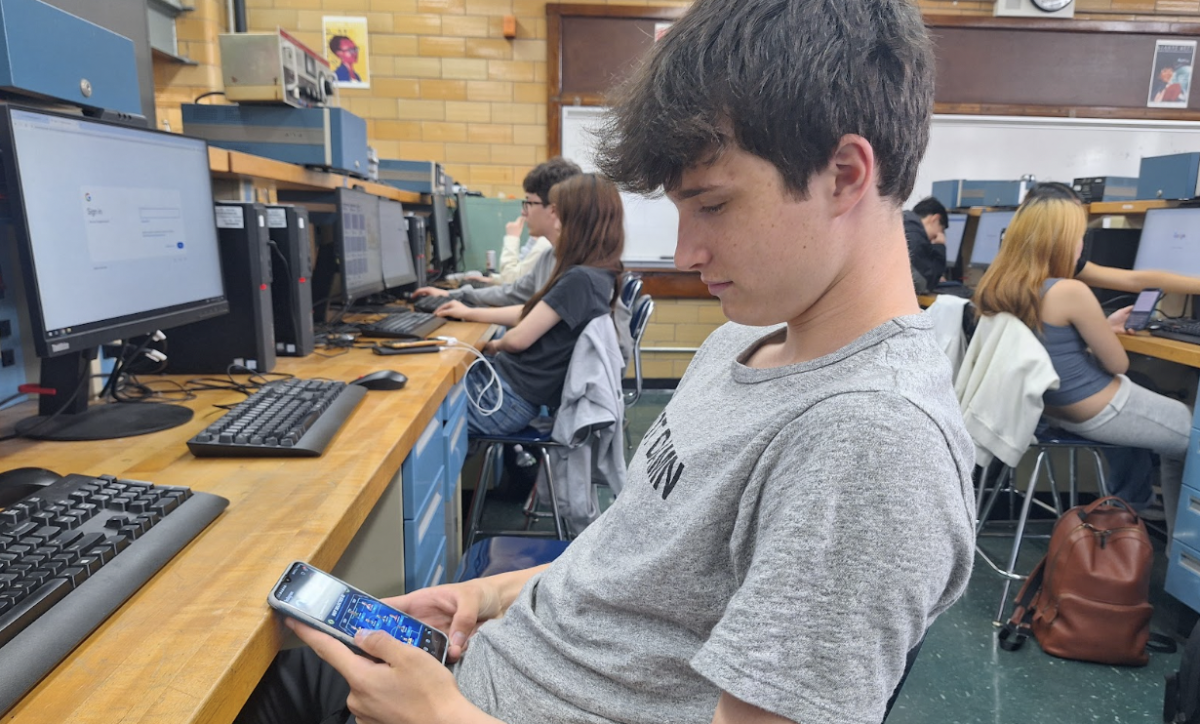Today’s teenagers spend significant amounts of time on social media, so much so that they have been dubbed as “screenagers.” With increasing time spent on social media platforms has come an increasing reliance on social media posts for news, meaning that teenagers may be receiving misleading news, leading to an increased sense of polarization and untrue conclusions—a trend exacerbated by algorithms that popularize extreme and sensationalized news. Tech students are no less susceptible to misinformation than the average teenager, begging the necessity for current event awareness.
According to a survey by the Pew Research Center, the percentage of those in the U.S. between the ages of 18 and 29 who regularly utilize TikTok as a news source has risen to 32%, which is four times greater than in 2020.
Mr. Adam Virzi, who teaches the Journalism elective class, asserted, “While it can be tempting to get your news on TikTok or through late-night shows, it’s important to realize that this content is often produced by non-expert sources that don’t have the same ethical obligations to truth and objectivity.”
With social media apps like TikTok and Instagram promoting content that algorithms predict will get the most user interaction, rather than content that is the most factual, this lack of obligation becomes even more obvious. The more users interact with a given app, the more algorithms cater to their opinions, confirming their beliefs and screening out other perspectives.
Recognizing the potential for misinformation on its platform, Meta recently added a ‘Political Content’ feature to “limit political content” on its platforms Instagram, Facebook, and Threads, as well as enabling users to skip political content entirely if they wish.
Tech students have noticed misinformation and biased reporting on social media regarding current events, emphasizing the potential significance of the new feature. “I’ve seen a lot of my peers from Tech posting a lot on Instagram about news, especially Israel and Palestine right now, and I have noticed some misinformation out there,” noted Law and Society major Aila Woods (‘24), who is a student in the Journalism elective. “A lot of people through social media become very polarized on their views.” Polarization can lead to inaccurate understandings and increase the intensity of conflict between perspectives.
Misinformation on social media has caused confusion surrounding events like the January 6th Insurrection. In a survey conducted by The Washington Post and the University of Maryland, 26% of respondents claimed that they were “not sure” if the FBI operated, organized, and encouraged the attack on the U.S. Capitol. Among Tech students who responded to the same question in a Survey poll, 31% said that they also “don’t know” if the FBI incited the events of January 6th. Although any claims of FBI involvement in the events of January 6th have been debunked time and time again, they have continued to be spread on social media platforms like Facebook and TikTok, shaping how some may vote and their political attitudes.
Despite the dangers and inaccuracies that come with news spread on social media, some Tech students are cognizant of and warn against misinformation. Rose Norman (‘26) suggested that curious students “pay attention to when your teachers have you learn about citing sources, learn about what sources to look at.” Additionally, Norman encouraged students to actively seek balance in their news consumption.
Considering that residents of NYC largely lean left in terms of the political spectrum, Woods said, “I would definitely encourage [students] to also read from more center sources and even read some right-leaning sources.” AP News is an example of a good center source, and The Wall Street Journal is an example of a credible right-leaning source.
As an alternative to reading news, Ms. Vesna Sukalo, an English and Advanced Placement (AP) English Language and Composition teacher, had another suggestion. “There’s a lot of great podcasts,” she said, highlighting Consider This, an NPR podcast that delivers brief audio summaries of current events. “They just give you an idea of what’s happening in the world, and a program like Consider This is really great because it’ll take a news headline and just explore it a little longer.”
Developing students’ media literacy can also happen in the classroom. “I feel like students who are particularly in Law and Society, they’re the ones that seem to be more aware of what’s happening around the world, versus a kid in Finance or PharmD,” explained Ms. Sukalo, who wishes that a wide array of current events were covered in classes.
Some feel Tech has much work to do in educating students about current events. “I actually don’t think that Tech does a good job,” Norman stated. “I get the impression that teachers aren’t allowed to speak too much on certain current events.”
Woods agreed, saying, “I think Tech could do more to encourage students to take classes that are more geared towards current events.” “If you’re not getting any current events at school I think that that could potentially be a problem.”
Tech students’ bandwidth for current events education is also limited by the demands of mastering AP course content. “In most of my AP classes, we definitely do focus mainly on just the curriculum and we don’t really go into what’s happening currently in the world,” shared Woods.
Mr. Virzi offered suggestions for students interested in journalism or actively engaging with the news. “More than learning to write using journalistic genre conventions, student journalists should focus on developing the critical framework and research skills of a journalist,” argued Mr. Virzi.
As social media and online sources become increasingly unreliable platforms for accurate and comprehensive news, it is even more important that students stay responsibly informed to vote, protest, and speak up for the world they will inherit.









































